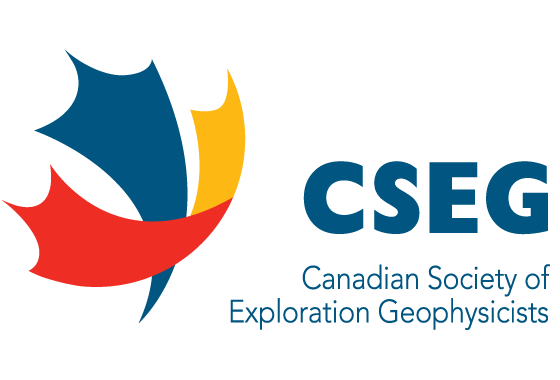Daniel Trad - 2011
CSEG Technical Achievement Award Citation for Daniel Trad
Citation by Mauricio Sacchi
 It is a real pleasure to write this citation for my friend, colleague and fellow countryman Daniel Trad who is honored by our society with the inaugural Technical Achievement Award. This new award brings refreshing news to my ears. In the past, local companies have been key players in stimulating research and development in applied seismology. Canada and, in particular Alberta, are known worldwide for their role in the advancement of seismic processing, imaging and inversion methods. The story today is about innovation and, in particular, about local technical innovation propelled by the work of Daniel. The award provides not only an opportunity to honor Daniel's technical achievement but also to encourage local companies to invest on technical innovation efforts.
It is a real pleasure to write this citation for my friend, colleague and fellow countryman Daniel Trad who is honored by our society with the inaugural Technical Achievement Award. This new award brings refreshing news to my ears. In the past, local companies have been key players in stimulating research and development in applied seismology. Canada and, in particular Alberta, are known worldwide for their role in the advancement of seismic processing, imaging and inversion methods. The story today is about innovation and, in particular, about local technical innovation propelled by the work of Daniel. The award provides not only an opportunity to honor Daniel's technical achievement but also to encourage local companies to invest on technical innovation efforts.
Daniel's work spearheaded a new model for seismic data processing, a standard that is being adopted by companies worldwide. Daniel developed the first multi-dimensional commercial algorithm for the regularization of data that depends on four spatial coordinates. This is commonly referred as 5D interpolation (four spatial coordinates plus time or frequency). The academic development of 5D interpolation was initiated by the groundbreaking work of former graduate students Bin Liu at the University of Alberta and Paul Zwartjes at Delft University of Technology. The problem involves the reconstruction of wavefields that depend on source and receiver x-y coordinates. Academic research rarely permeates into industry without the relentless effort of colleagues like Daniel. They press on management to embrace new ideas and devote energy to turn an academic algorithm into a robust seismic data processing workflow that operates under a variety of conditions. Daniel pushed for the idea of 5D reconstruction and fought a plethora of technical and logistical problems that required sharp solutions grounded in signal processing, inverse theory, harmonic analysis, acquisition design and high performance computing. Daniel has also mentored Bin Liu during a summer internship where an early prototype of 5D MWNI (Minimum Weighted Norm Interpolation) was tested. Daniel's vision roots in recognizing the value of collaborating with an academic team, a clear identification of industrial needs, and embarking into the development of a functional and robust solution to the multi-dimensional reconstruction problem. Daniel also paid attention to the needs of seismic interpreters (the final recipients of 5D reconstruction). Daniel and enthusiastic seismic interpreters coauthored a series of strategic articles that challenged others to pursue multi-dimensional seismic data reconstruction. These articles illustrate the impact of 5D reconstruction on meticulous AVO studies and ignited new developments and innovation throughout many seismic data processing contractors. Competition immediately drove the development of new algorithms and stirred the open-ended dialogue that centers on the possibility of adopting reconstruction as a mean of saving acquisition costs. Daniel also recognized the importance of survey irregularities for the mitigation of sampling artifacts. In addition, Daniel identified early on that multi-dimensional irregular sampled data are more amenable to interpolation than regular sampled data. Today, many of Daniel's practical ideas align well with new paradigms in signal processing inspired by the theory of Compressive Sensing.
Daniel Trad received a Diploma in Geophysics (1994) from the Universidad Nacional de San Juan, Argentina, and a Ph.D. (2001) from the University of British Columbia, Canada. His Ph.D. thesis and postdoctoral work focused on sparse Radon transforms, attenuation of diffracted multiples, interpolation and migration. His mentor was Dr. Tad Ulrych. Since 2003, Daniel has undertaken the role of Research Geophysicist at CGGVeritas. He has been part of the Calgary R&D seismic community since then. Daniel has published numerous articles and conference proceedings on seismic signal processing.
Our Society's Awards Committee is applauded for choosing Daniel Trad for the inaugural CSEG Technical Achievement Award. Daniel is my friend and colleague and, a fellow Argentinian.




